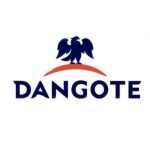SEC DG Calls for Banking Sector Recapitalization to Achieve Trillion-Dollar Economy
By Patience Ikpeme
The Director General of the Securities and Exchange Commission (SEC), Dr. Emomotimi Agama, has emphasized the necessity for Nigeria to address critical sectors and leverage a recapitalized banking sector to unlock its economic potential and achieve a trillion-dollar economy.
Speaking at a forum on bank recapitalization in Abuja over the weekend, Dr. Agama outlined a comprehensive strategy for economic diversification and growth.
Dr. Agama highlighted that the nation must diversify beyond oil exports and invest significantly in infrastructure, human capital, and innovation. Additionally, enhancing the business environment, reducing regulatory hurdles, and promoting financial inclusion and access to credit for small and medium-sized enterprises (SMEs) and individuals are essential steps.
“Bank recapitalization refers to the process of increasing a bank’s capital to meet regulatory requirements, improve financial stability, and enhance lending capacity,” Dr. Agama explained. He detailed how the capital market plays a pivotal role in this process by providing banks with access to various financing options, including equity financing, debt financing, and rights issues.
He further stated, “Recapitalization through the capital market can help banks meet regulatory capital requirements, improve capital adequacy ratios, increase lending capacity, enhance financial stability, and restore investor confidence.”
Dr. Agama emphasized that a recapitalized banking sector could significantly increase lending to key sectors such as agriculture, manufacturing, and infrastructure, driving economic growth. It would also enhance banks’ ability to underwrite large-ticket transactions, support big projects and industries, attract foreign investors, boost capital inflows, and deepen the capital market.
Recapitalization, according to Dr. Agama, could encourage the listing of banks and other companies on the Nigerian Exchange Limited (NGX), increasing market capitalization and fostering a stable financial system, which in turn reduces systemic risk and promotes economic stability. The NGX platform, designed to streamline public offerings and rights issues, was identified as a viable channel for boosting investments and aiding economic improvement.
However, Dr. Agama acknowledged the challenges associated with recapitalization, including share price dilution, increased debt servicing, and regulatory hurdles.
Recently, the SEC released a framework to ensure a smooth, transparent, and efficient capital-raising process for banks and holding companies participating in the recapitalization program. This framework outlines the guidelines and procedures for banks to raise capital through rights issuance, private placements, or other approved methods during the 2024-2026 recapitalization period.
On March 29th, the Central Bank of Nigeria (CBN) directed an increase in the capital base for Deposit Money Banks (DMBs) to enhance productivity. The new minimum capital requirements mandate international banks to raise their capital base to N500 billion, national banks to N200 billion, and regional banks to N50 billion. The CBN urged DMBs to expedite actions to strengthen their capital base against potential risks.
The SEC’s framework is a direct response to the CBN’s directive and establishes clear guidelines for banks to follow, promoting transparency and protecting the interests of all involved parties. The SEC acknowledged the necessity of the CBN’s directive, highlighting the importance of bolstering banks’ asset base to support economic growth and achieve the government’s target of a $1 trillion economy by 2030.
“As the regulatory institution mandated to regulate and develop the Nigerian capital market, the SEC has the responsibility to ensure a smooth, transparent, and efficient capital-raising process by the banks,” the framework stated.
The SEC continues to recognize the crucial role of the capital market in facilitating the recapitalization program, enabling banks to access necessary funds and explore various business combinations to support Nigeria’s ambitious economic goals.




